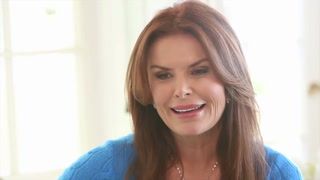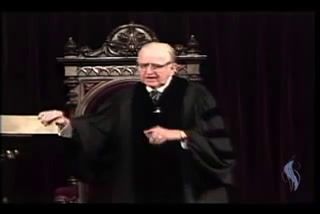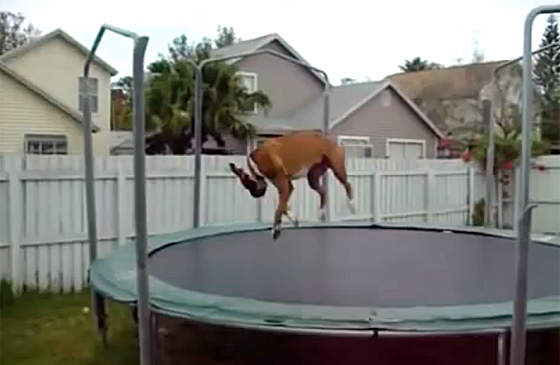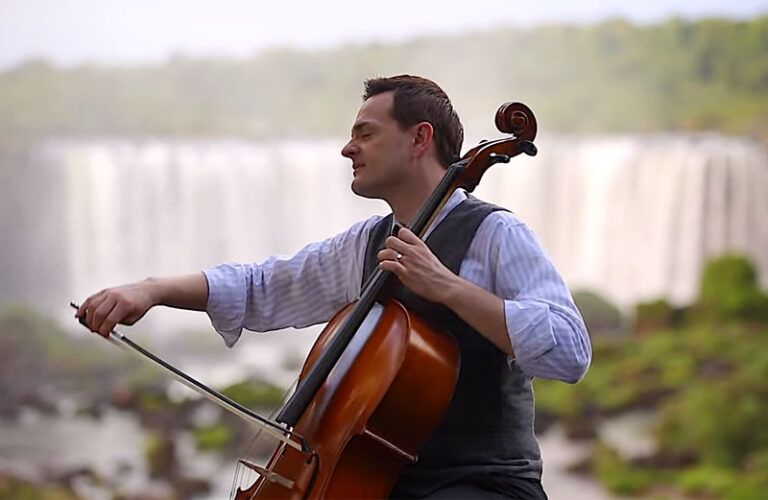
Tags
A Conversation with Trent Shelton
In this series of videos, the former NFL player, motivational speaker and author of The Greatest You gets real about his faith, his failures and how he tapped both to discover his life’s purpose.
View Transcript
Trent Shelton Finds New Purpose Off the Field
I’m Trent Shelton, founder of Rehab Time, author of a bestselling book, The Greatest You. I’m a former NFL player. Spent three years in the NFL. But I hit my lowest point in that process by getting cut and released. But at my rock bottom, I found my purpose, which is Rehab Time.
Rehab stands for Renewing Every Heart And Body. My whole entire identity, since I can remember, was sports. We moved to Texas when I was in seventh grade. And Texas is, like, football is everything. I ended up getting a scholarship in football to Baylor University.
I was down there for five years, and my career was great. Ended up getting a call from the Indianapolis Colts as a high-priority free agent. Got to Indy, and I had an outstanding preseason—I mean, one of the best in the NFL that year amongst rookies. Three weeks into me living in Indy, I get a call from the Colts again, and they cut me.
So at that point, that was my first taste of “OK, this is a business.” And so I drive from Indy to Texas, which is a long drive. 13, 14 hour-drive after you get cut, and I’m thinking, “What am I going to do with my life? Everybody knows me. If I’m here, that means I got cut.”
So I stayed inside my mom’s house—depressed, stressed, all these things, but still smiling for the cameras, I like to say. But dying behind the scenes, telling people, “I’m all right. I’m good.” But I wasn’t good at all.
Two weeks—maybe a week or two later, I get a call back from Indy. They want me back. So I go back up there.
And to make a long story short, that was my NFL career for three years. I would be here, I would be there. I would be in a new city. And in that process, I had the birth of my son, Tristan.
And me and Maria—at the time, we weren’t together, so it definitely wasn’t planned. And that hit me, like, “Man, what am I going to do with my life? I’m getting cut, I’m getting released. I don’t have any job security. My life is all over the place, and I have a son on the way. What am I going to do?”
And instead of going back to the foundation that I had that my parents gave me, which was faith, and going back to God, I ran farther away from God, and I ran to the things in the world—clubs. I’m around celebrities now. Let me just—let me just pop pills, drink alcohol, smoke weed. Let me do all these things, just to get my mind off of it.
And it gave me a temporary high. It gave me a temporary escape. But once those things wore off, I was back dealing with my reality. And you can fool perception, but you can’t fool reality.
The main thing, I guess, that really triggered my change was in 2008, when Tristan was born. And when I held Tristan for the first time, I remember—not telling him in an audible voice, but just in my mind—“I don’t want you to grow up to be like me, especially right now. Like, I don’t want this life for you.” And that hurt me when I said that.
As a parent, your choices will become your children’s consequences. And for me, I was like, “Nah, I have to change.” So Tristan was a start for me becoming a better man.
I was with the Seattle Seahawks, and I got released after the season with Seattle. But I was on the road. I like to call it the Rehab Road. I was living Rehab-ish, meaning that I was changing, but I was still one foot in, one foot out.
I was laying down, looking around my room, looking at trophies and pictures of my son. I knew football wasn’t going to be it for me. Even though I still had time to prove myself, I wasn’t confident enough.
So I asked God, like, “Is this going to be it?” And I started crying. And something came over me. And I said, it’s Rehab time. I literally started it for myself.
And I said, I’m going to put this strength back into a weakness. People who hear rehab, they think drugs, alcohol. Rehab, for me, is this. We all have something in our life that we can rehab—mind, body, and soul.
So I said, what can I control? Because so many times in life when we’re trying to change things, we think about all the things we can’t control, right? And so I said, what can I control? Well, I can control my fitness. I can control my spiritual walk. I can control my mindset.
I started working out. I started getting into my Word. I started reading books. I started writing. And in that moment, that was my journey that started Rehab Time.
It’s so funny how God will still use what you care about. Because I had one more shot at the NFL. The NFL stands for Not For Long, by the way. So you have three years, pretty much, to prove yourself. And so I had one more shot with the Washington Redskins.
And in 2009, I signed with the Redskins. And same thing, I get cut and released. But I’m in a better mindset now. Like, I know now there’s something bigger than just football for my life.
And that’s what started Rehab time. That’s what I want to do, whether it be from a spiritual level, fitness level, just a holistic change—I want to be able to impact lives.
But I knew that started with myself. That’s why I always say it all starts with you.
So I wrote a book, and it’s called The Greatest You. I really want people that pick up this book to turn their pain into their power. And if you’re a person that’s watching this and saying, “Well, I don’t have any pain” —you have pain.
But if you’re a person that’s saying that, there’s always a next level to your life. And that greatest you is not anything external. And that’s the whole part of this book. It’s not like the world has the greatest you. It’s not like you have to become something. A lot of this book is about unbecoming and realizing the greatest you is inside you.
How Trent Shelton Transformed His Breakdown Into a Breakthrough
I’m Trent Shelton, founder of RehabTime, author of the bestselling book, The Greatest You. I’m a former NFL player. Spent three years in NFL, but I hit my lowest point in that process by getting cut and released. But at my rock bottom, I found my purpose, which is RehabTime.
The foundation of strength is pain. Like, there’s no way in the world you can get stronger without going through pain. I mean, physically. Like, you go outside, like, there’s no way you can become in better shape without breaking down. And so I let people know, like, right after your breakdown, is your breakthrough. I thought, when football was over, that was my final destination.
But football was just a vehicle, was just a chapter in my life. So people say, “Trent, you’re a expert because…” I’m not an expert because I went to school. I’m an expert because I’ve been through life.
And so I’ve been through struggle, I’ve been through heartbreak, I’ve been through losses, I’ve been through losing my faith. And when you own that—when you say, you know what? I’m going to own this about me.
The greatest thing I feel, like, personally, a person can do, is take responsibility over their life. Is to point the thumb at themselves and say, you know what? It’s on me. Because we live life, most times—I know I did for a long period of time—like this: Pointing the finger at everybody else. Blaming God, blaming their relationship, blaming their job, blaming their boss. And even though maybe someone hurt you, or someone gave you pain—the pain might not be your fault, but the healing is your responsibility.
Somebody might have brought you to where you’re at today. But guess what? At the end of the day, you can choose to stay there, or you can do something about your life. And so, pain produces growth. Struggle produces strength.
Even when I go through things now that I don’t like, I’m like, “OK, this is power, because I’m going to learn something from this.” And it’s like if I gave you a map, right? And I said, “Look, I never hiked this trail before, and I made this map for you, and I gave it to you.” You would look at me like I was crazy.
You’re, like, “I’m not about to listen to this guy.” But if I say, “Listen, I hiked this trail multiple times before. Here’s a map. Trust me, it’ll get you to where you’re going.” And I feel like you’ll be like, “Yeah, OK, cool.”
I feel like that’s the same thing with life. What you go through has qualified you to help other people get through it. And so, like, now, you can be like, “Listen, I’ve been there.”
I understand you. Trust me. You can get through this. I’ve been through it. And your pain qualifies you.
Trent Shelton on the Power of Prayer in His Life
Ty’Ann Brown: Hi, Guideposts. I’m Ty’Ann. I’m here with the amazing Trent Shelton, here to talk about faith in prayer.
How were you able to implement faith when you knew you had to build yourself up, but everything looked downhill?
Trent Shelton: I learned having a gardener’s mindset. That’s what I feel like what faith is. And I learned this from my grandfather. I would go to Arkansas, and he would plant, like, plants and stuff like that, or he would plant crops.
I was probably four or five years old. And we would go out there. We would plant it. And two hours later, I’d be, like, “Hey, Grandpa, like, where’s the crop at? Like, it hasn’t grown.” And he’s, like, “You know, Trent, just be patient. And I would bug him, like, every other hour.
He said, “When you have faith, you have to know something is taking place, even when you can’t see it.” And so I always keep that in my mind. I know if I do the right things, I know if I, you know, eat the right foods, I know if I exercise, I know if I feed my mind, body, and my soul, that eventually, that harvest will take place.
I knew, and I have to know, growth is taking place, even when I can’t see it.
Ty’Ann: In your book, you talk about Jeremiah 29:11.
Trent: Yeah. When I made it to the NFL, my mom gave me this book. It was, like, a football cover. and it said, “NFL.” And it had “New Found Life.” And she wrote on the cover, Jeremiah 29:11.
When I was going through that hard time, I opened that book, and I read that. I read the scripture. And I realized God has a plan for me, right? Not to fail me, to prosper me. I might not understand it. I might not get it. It might be hard. I might have to go through a place that I don’t understand just to bring me to the place where he needs me to be. But I trust on that.
And what’s funny is that the NFL, a New Found Life, wasn’t the NFL. It was Rehab Time for me. So I don’t know. It was just super surreal.
Ty’Ann: That’s awesome. So you go from “Not For Long” to “New Found Life.”
Trent: “New Found Life.” There you go.
Ty’Ann: Through the word of God.
Trent: Yep.
Ty’Ann: I love it.
Prayer has to be really prominent in the life of someone like yourself, with all that you’ve been through.
Trent: The realer prayer for me is, like, a conversation with God. But growing up, you know, I always thought that it had to be a set time, and it had to be a certain prayer. And I felt like my prayers were, like, programmed. I felt like I was saying the same things, which nothing wrong with that.
But I say, you know what? I want to be real with God. Like, I want to have a real conversation. Like, God knows me anyway. And so my best prayer life is when I’m out in nature. I feel like nature is, like, God’s natural medicine for the soul.
I always wonder why Jesus would go up to the mountains. When I go to a mountain hike, I just love it. I just feel so connected to God. It’s not the only time I pray, obviously.
But when I’m going through something hard, tough, or I’m going through stress, I will go out on these trails, and I always say, nothing exists outside these trails—no worries, no doubts. And I just feel that peace that surpasses all understanding. That’s what I call protecting my peace, and I do it very often.
Ty’Ann: Was there a specific time where you can recall prayer really helping you in a specific moment?
Trent: So just with speaking. Like, as we know, speaking is the no. 1 fear. Like, people would rather die than speak, right? I always say they would rather, like, be in the casket than give the eulogy.
When I’m always backstage, I think about this. I’m being selfish if I’m thinking about being perfect. Because there’s no way you can serve, right, by being selfish.
And so when I’m back there, I always say, “God, help me not focus on me being perfect. Help me not focus on how I look. Help me focus on giving your message to the world.”
And my thing is God using me. Like, sometimes, it’s just like that—“God, just use me in the way you want to use me. Whenever that looks like, I’m open to it. I’m going to follow you.” And He uses me in the way He wants to.
Ty’Ann: What is the most important thing you would say for someone to remember while they’re praying?
Trent: Believe. Like, believe when you pray. I know for a lot of my life, I’ve prayed these victorious prayers. But I don’t know if I believed it.
When you truly show God that you trust Him and say, like, “I believe in you. I don’t care how impossible. I don’t care how much rejection. I don’t care how many setbacks I’ve had in my life, how many people have walked out of my life and told me no. I believe that you got me. And I feel like that activates the power of God in your life.”
I’m going to believe what I pray in, and I’m going to walk it out, those ordered steps, until, you know, that harvest come into my life.
Ty’ann: But you talk about belief being an important component of praying.
Trent: Yeah.
Ty’Ann: How do you encourage someone who prayed a prayer, but it seems that the prayers have gone unanswered?
Trent: I don’t really believe in unanswered prayers. I believe that prayers aren’t unanswered, because—in your way, but maybe God is answering another prayer. And a lot of times, say, it might be, God, I’m praying for this job.
But one prayer that pretty much we all pray is prayer for protection. So God—maybe He answers your prayer for protection. Maybe that job was going to cause you to be stressed out. Maybe—you know, whatever it may be.
So the prayer for protection has always been answered. So know if God doesn’t answer your prayers in your way, He has something bigger and better for you.
How Trent Shelton Uses Social Media to Inspire Others
I’m Trent Shelton, founder of Rehab Time, author of the bestselling book, The Greatest You. I’m a former NFL player, spent three years in the NFL, but I hit my lowest point in that process by getting cut and released. But at my rock bottom, I found my purpose, which is REHAB Time.
Rehab stands for Renewing Every Heart And Body. I want to break it down so people can understand. My definition is always just putting the strength back into a weakness. But I was, like, I want something that people can gravitate to, whether it be from a spiritual level, a fitness level, just a holistic change. I want to be able to impact lives, but I knew that started with myself. That’s why I always say, it all starts with you.
The video thing, I’ve got to give kind of a backstory. I love to rap. I love music. I was making videos, like rap videos. I would be on Twitter. And I would still have motivational spiritual stuff. But, like I said, I was one foot in, one foot out.
The main catalyst for me like really being committed to Rehab Time was my college roommate committing suicide. And me going to Anthony’s service made it really real for me that life is not guaranteed.
And with him committing suicide, like, it literally broke my heart because he lost something. So even when people watch my videos, they say, “Trent, you talk a lot about removal,” or, “You talk a lot about losses,” and that’s the reason. Because I made a promise to Anthony that if anybody in the world ever feels, like, “My life is over because I lost this”—I felt like that because I lost football or some people feel like that because they lost a relationship and they lose their relationship with God because they lose their relationship with a human being—I want to be that voice for people to say, “You know what, no matter what you lose, who you lose, your life can still carry on and your life can get better.” So that was my reason, right, that really made Rehab Time real for me.
I wasn’t getting booked to speak, once I realized that I was a speaker. Many people weren’t watching my videos at that time. So I say, “I’m just going to share my journey. I’m going to be transparent about my life.”
So the beginning videos, it was a lot of me talking to myself. It was my accountability. Because my thing was, if I’m going to put it out here, I have to live it. And I picked up my iPhone—I didn’t have expensive cameras, I didn’t have production or lighting—and I made two-minute videos.
As I was making these videos, they were impacting lives. I always said impact over numbers. But it took me walking into my biggest fear, which was speaking on a stage, that really, I guess, gave birth to the videos.
And it was at Oak Cliff Bible Fellowship, a good friend of mine, he asked me, “Trent, I want you to speak at my event.” And I tried my best to get out of it because I’m, like, I’m not a speaker. Like, “Nah, I can rap. You know, I can make it clean. Let me do that.”
And he was, like, “Nah.” He’s like, “I see something inside of you that you don’t see in yourself. Like, you have a gift, I’m telling you.” And I was, like, “I’m not trying to hear that. Like, if you see anything, see me getting signed back to a football team, you know?”
I ended up doing it. What seemed like five hours was five minutes. And I literally forgot everything I prepared once I got on the stage, and I just said, “God, use me.” And God flowed through me, and those kids were locked in.
The next day, I had to report to New Orleans for Arena Football because I was still hanging on to football because that’s where my identity was. And I called the coach when I got offstage, and I said, “I’m not coming.”
And I want people to understand this, like, [there weren’t] many people watching videos. I wasn’t the person that you guys know of me today. But I stepped out on faith and I said, “This is what I was created to do.”
Because there was a certain amount of certainty I felt on that stage, in the midst of fear, confusion, so I knew it was God. But I knew I had to let go of what I was holding on to. And when I let go, three, four months later, the videos started to go viral, and my life changed forever.
So why do people enjoy my videos? I ask people that question a lot. And I think it’s—the thing that I get is, “Trent, you’re transparent. You’re real. You’re not afraid to talk about things that people go through.”
And a lot of people say, “I feel like you know my life.” And it’s not that I know your life. I know my own struggles, and I’m not afraid to talk about my own struggles. It’s my transparency in my own life.
And I say, “Look, I dealt with depression. I still deal with it, at times. I go through things,” and I think that’s why people relate to it so much.
But to see people not commit suicide, to see people break away from toxic things, to see people rekindle a relationship because of a video, every single day, there’s somebody that’s like, “You know, I watched your video and it helped change my life.”
And I always tell people this, like, “I didn’t change your life. Like, I’m just a vessel. God used me. God changed your life. You made the decision to actually take the information and apply it to your life.”
I try not to understand it, if that makes sense. I just try to live in the calling that God has for me.










